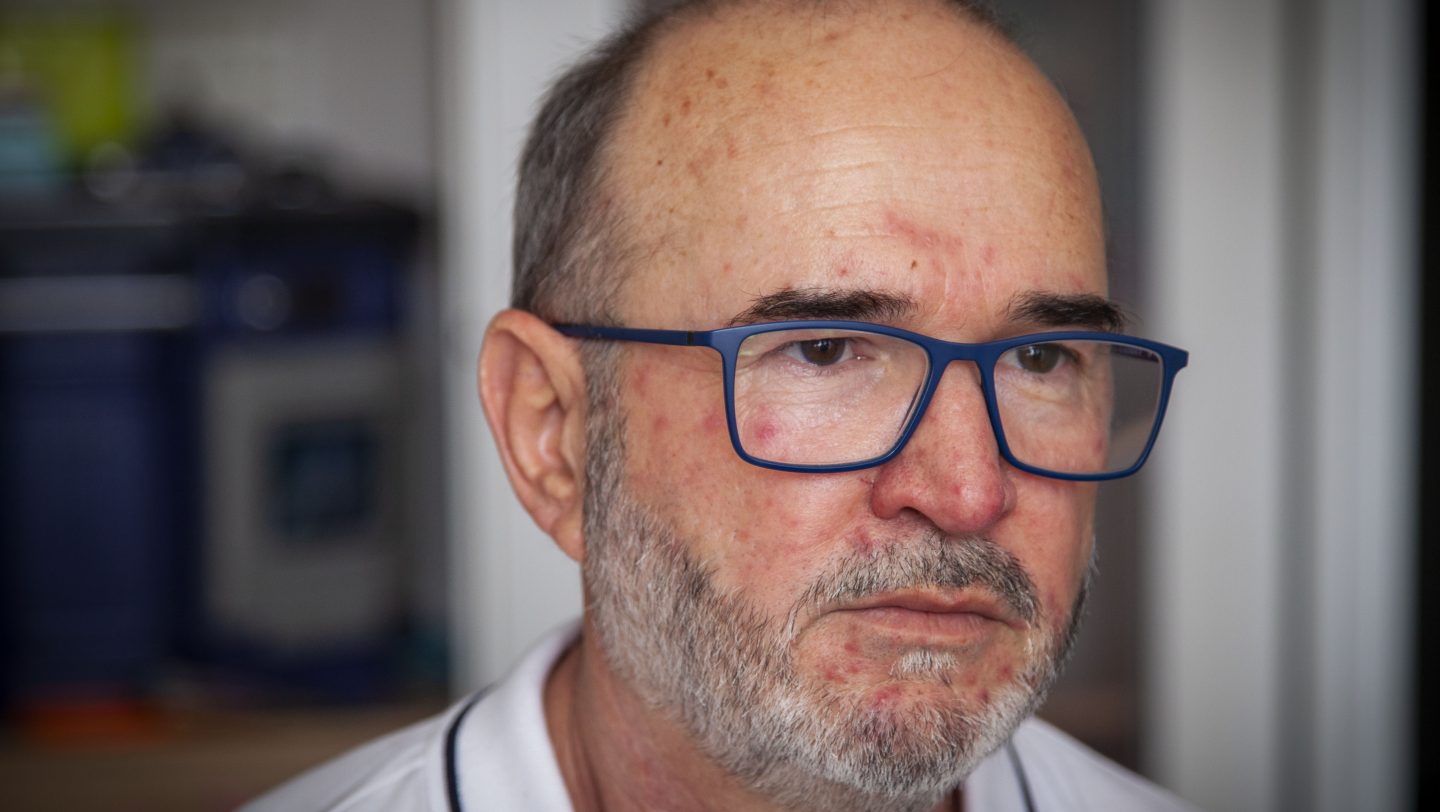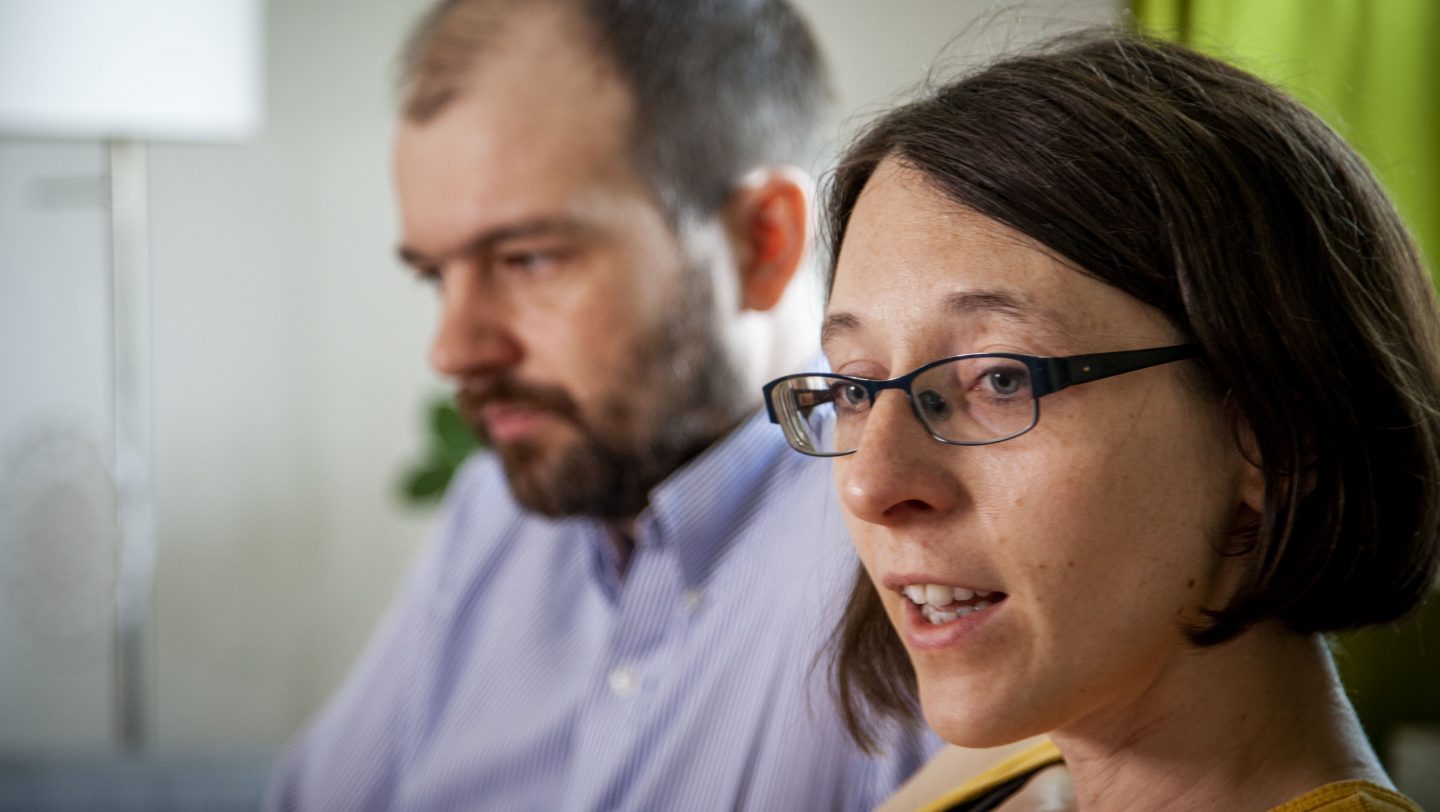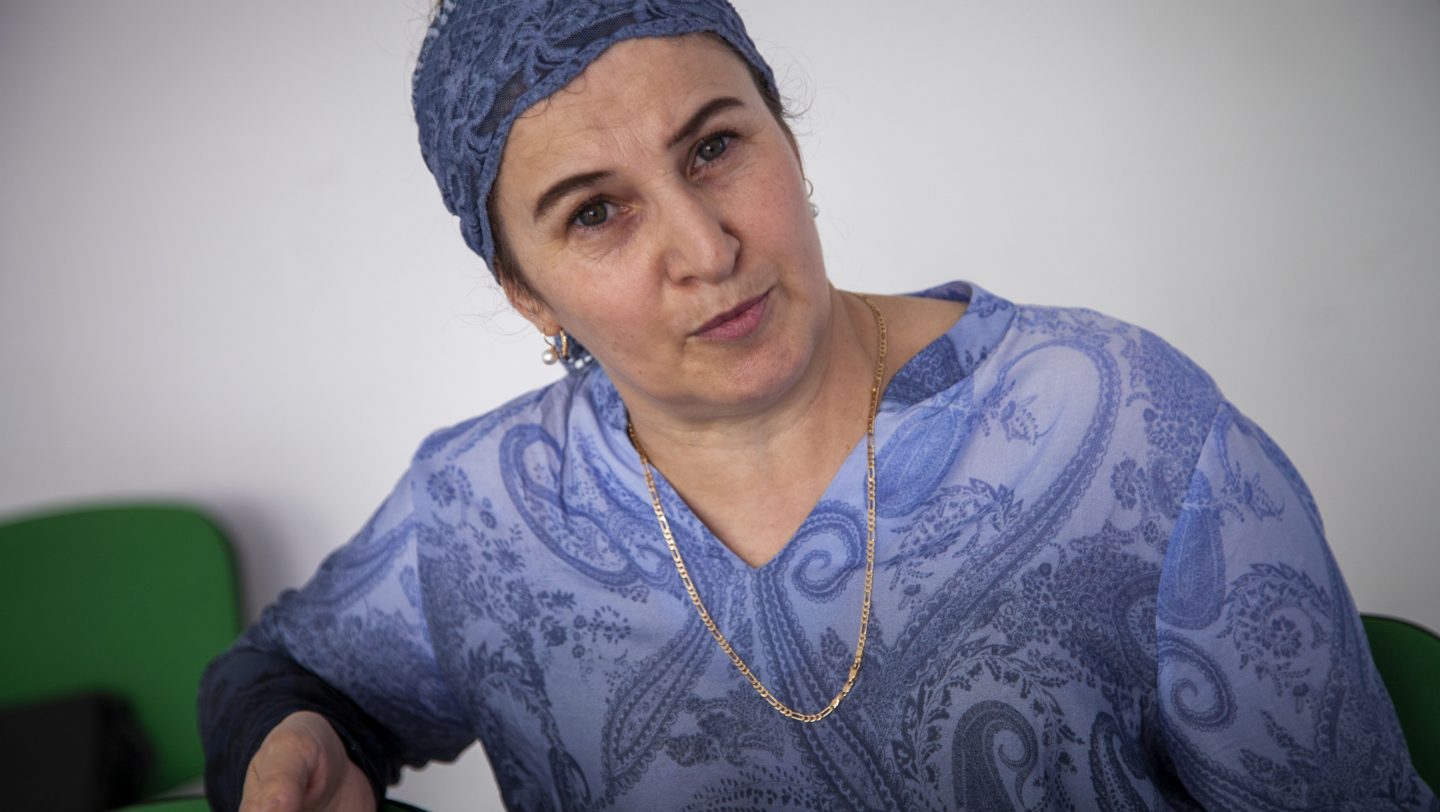Pioneering Polish NGO helps refugees rent in difficult market
A Tajik family in Warsaw says thanks for a flat they could not have afforded to rent on the open market
Photo: UNHCR / Rafał Kostrzyński
Said and Shakhodat are happy to watch their four children growing up in decent accommodation, with the stability and peace they need to concentrate on their school work. “The kids can study, this is the main thing,” says Said, who was a teacher in Tajikistan.
But without the help of a pioneering Polish NGO, which helps refugees find housing in a competitive rental market, Said and his wife would not have been able to secure the two-room flat where they live in a quiet suburb of Warsaw.
For an asylum seeker, getting refugee status is only the first step. “We see that many refugees are subsequently at risk of poverty and homelessness,” says Piotr Bystrianin, CEO of the Ocalenie (Salvation) Foundation that among other things helps to connect refugees needing affordable accommodation with landlords willing to provide it.
“This programme is a dream. If only it had existed when I first arrived,”
Ocalenie’s “Welcome Home” programme has been running since 2017 and is unique in Poland. The concept is simple:
Altruistically minded landlords choose to make a less-than-market profit on renting out their properties or even just to cover their costs. Ocalenie ensures refugee beneficiaries meet certain conditions, including paying on time, attending Polish classes and looking for work.
The arrangement is not open-ended but lasts for two or three years. Currently, eight families have apartments, two more flats have been offered and 12 families are waiting to be housed.
“This programme is a dream. If only it had existed when I first arrived,” says Leyla, a refugee from Chechnya who has been in Poland for 13 years. Now she helps other refugees to settle in.
Because Leyla speaks good Polish, she often phones on behalf of refugees who are trying to rent flats. “When I say that the client is a foreigner, they (prospective landlords) say they only want Poles. They say this straight out, and I get this answer quite often.”
Leyla’s experience shows that although racial discrimination is illegal in Poland, xenophobic attitudes can sometimes surface in everyday life.
“We felt joy, and gratitude to God and the Polish people for the chance to have a home.”
One landlord taking part in the programme agrees. “Yes, I think there is a degree of xenophobia in Poland but show me a country where there is not,” says Grzegorz who, with his wife Dagmara, is renting out a spare flat to refugees.
Grzegorz, a historian, and Dagmara, an architect, have opted for the most generous way of helping their tenants and are only asking a small rent to cover costs on the flat in the up-market district of Mokotow.
“We inherited it from grandma,” says Dagmara. “While our children are small and we do not yet need to pay for education, we feel we can afford to do this (forego profit). We think it is important to help refugees.”
Piotr Bystrianin from Ocalenie is full of praise for such landlords, who break the stereotype of xenophobic Poles. “It shows Polish people do want to help refugees,” he says.
Grzegorz and Dagmara’s tenants are from Chechnya. They do not have much contact with them, as Ocalenie takes care of the administration. “We like this approach,” says Grzegorz. “We respect the tenants’ privacy.”
Another landlord is helping Said and Shakhodat from Tajikistan. They only met once when they signed the contract with him. He leaves them in peace to rebuild their lives, which were shattered when Said was forced to flee from Dushanbe for political reasons.
Said says he never experienced xenophobia while looking for an apartment in Poland but there was another problem. “Landlords would ask how many children I have. When I said ‘four’, they would tell me I needed a bigger flat.”
For Said, who is currently unemployed and receiving only small welfare benefits, a large flat was unaffordable.
Luckily, Said met other refugees who told him about Ocalenie. “They accepted us, and the conditions are not hard,” he says. Indeed, he wants to learn Polish and find a job. At age 53, he is realistic about what he might do; perhaps driving or working as a watchman.
The family received help when they moved into the flat. Furniture was donated and someone even gave them a Persian-style carpet to add a comforting touch.
The four children, aged from 13 to three, spread out in the two rooms, each doing their own thing, be it homework on a laptop or watching cartoons on the wide-screen TV.
Since moving in 10 months ago, the family has celebrated Ramadan and birthdays and of course they had a modest housewarming. Said says: “We felt joy, and gratitude to God and the Polish people for the chance to have a home.”
Share on Facebook Share on Twitter





